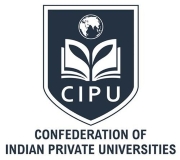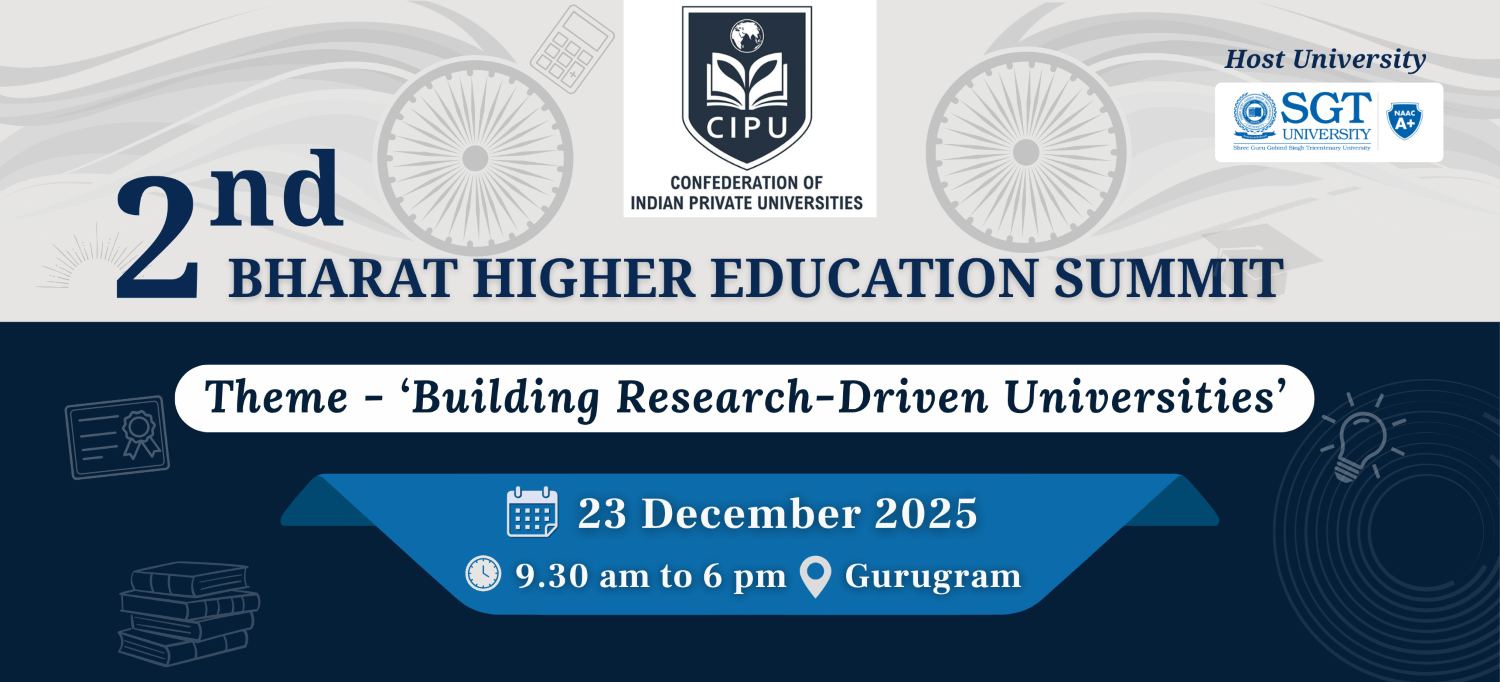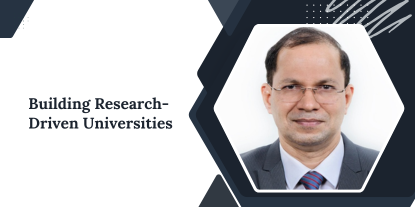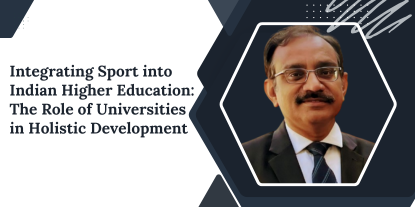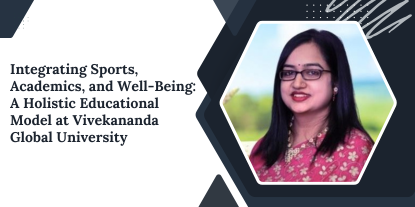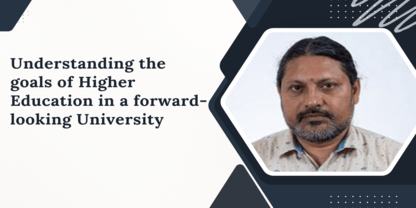
|
Prof. Sudipto Acharyya.
Professor & faculty, Whistling Woods Intl. Institute of Film Communication & Creative Arts, Mumbai |
To begin with it’s important to clarify for common good, as to how high is higher education. As the reach of education is spreading and greater portion of the population is accessing University system, the bar that defines the height of education is also changing. The bulk of job seekers in the job market have an Undergraduate degree or an Engineering degree. An undergraduate degree alone will not ensure you a flourishing career anymore, neither will it create any significant advantage for the subject. Yet an Undergraduate degree forms the founding pillars for further studies and advancements. It provides the necessary impetus for enquiries and knowledge creation that are to be sharpened during Master studies and Doctoral studies. Undergraduate studies are the rites of passage that lead the students to further specializations.
The focus of Undergraduate studies should ideally be:
- Creating a strong foundation
- Developing Critical Thinking
- Practical Skills, Problem solving and Industry Integration
- Developing soft skills (eg. Social Communication, Group Dynamics, Leadership etc.)
- Instilling confidence and self-goals.
While a few students can successfully achieve these goals on their own, there are many who lag behind. It’s for such students that the learning-teaching eco-system should gear up. There has to be enough flexibility in the system to personalize learning. The students (particularly those who lag behind) should be helped to clearly identify their strengths and fortify them and work on their weaknesses under a dedicated mentor. A favorable teacher-student ratio can add to this flexibility.
It has to be ensured that technology creates a level playing ground for all students, such that resources and learning tools are at their fingertips. Also the students should be mentally prepared to continuously adapt to new technologies and trends.
The evaluation system should be such that students are oriented towards critical thinking, originality and creative outputs instead of reproducing by rote.
Lastly, the students should be advised and encouraged to think beyond the job market. They should be able to imagine and visualize a future in which they themselves will be the generators of jobs.
The above formulations have been made keeping the students in mind and by stepping in to their shoes. However we can better understand the need of these goals and further sharpen them by asking a few questions to the planners of new University of the future, question relating to it’s raison d’etre. The future of education services is waiting and should not catch us napping. A forward-looking university can clearly identify three different timelines for itself:
1. Current State-of-the-Art methods: Strengthening basic core as delineated in the Undergraduate studies program and focus, as mentioned above.
2. Future Paradigms: Building new education models
This can begin in the Master’s Program where students have come in with a strong foundation or with experience of working/interning. It’s possible to imagine models where there is something for every member of the population. Just like the Banking Sector, which has revolutionized banking accessibility for the farthest members of
society without visiting the bank, Master’s programs could also be similarly planned. A postgraduate student in a decade’s time might access the best faculty and resource without leaving his/her hometown and making merely two campus visits per semester. Remote learning with video links can be supplemented by a network of affiliated laboratories spread through the country for practical credits. And certainly the course fees can become comparable to a local college while attaining a highly specialized knowledge stream. Questions of affordability and accessibility both need to be addressed for the future horizon if a forward-looking University needs to remain competitive.
Furthermore, the Master’s program curriculum should be brought to speed. Most Master’s program in India has a disproportionate tilt towards theoretical studies and lacking practical, hands-on exposure. The curriculum must re-focus on creativity and problem solving. The teaching methodology should extend beyond classroom lectures and incorporate interactivity through student centric learning, group discussions and team goals. Case studies and well-defined projects as end-of-term Capstone submissions must replace written exams. Master program curriculum should be dovetailed with various policy making groups, advocacy groups and planners at a national and regional level.
3.Going Beyond:
Monetizing Research should become the immediate goal if a University needs a 100 years life span of teaching, learning and leading. The University must have a clear vision about areas of research that lends itself well to monetizing, attract private equity capital and become a hub of innovation ecosystem that is co-piloted by venture studios. Currently there are only a handful of Universities and Education centers that have taken this path in India.
